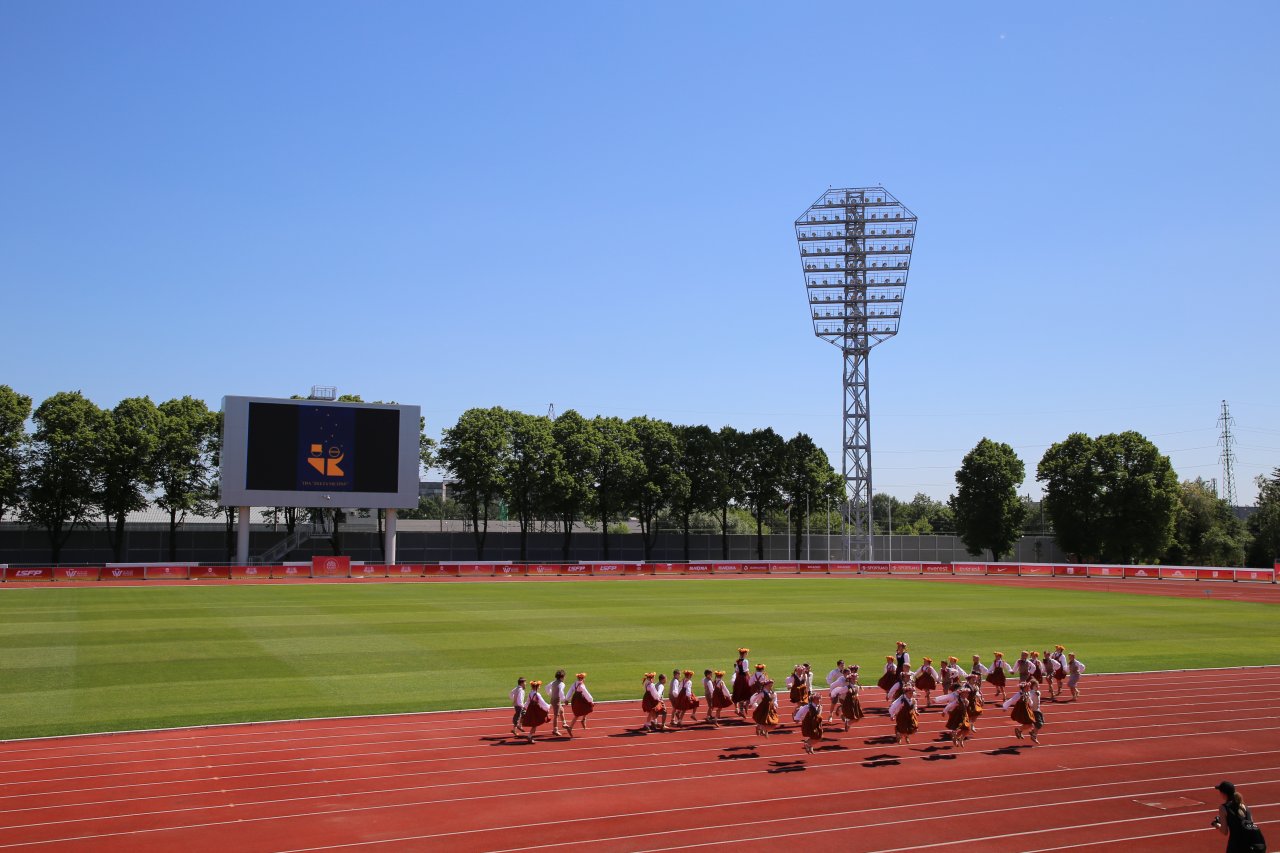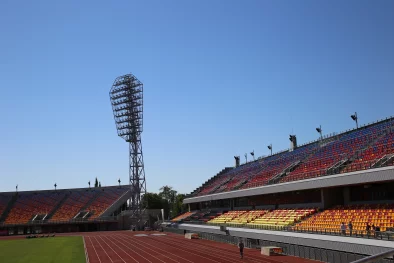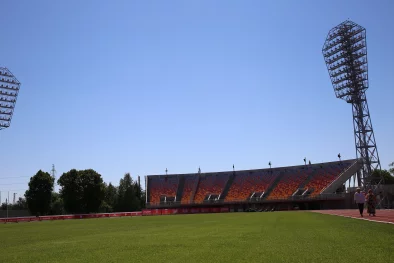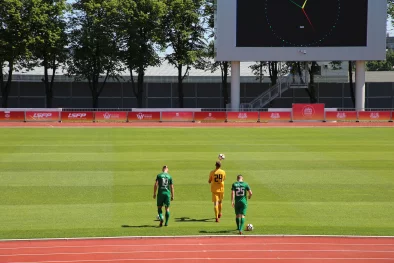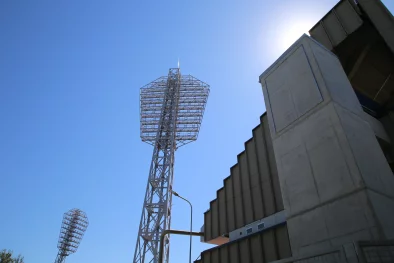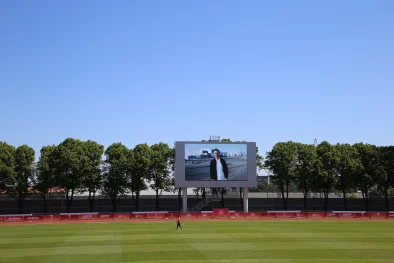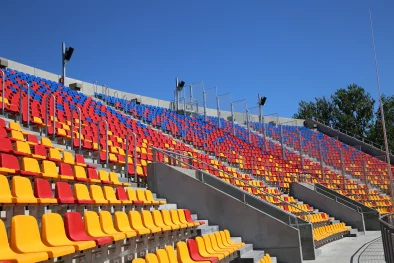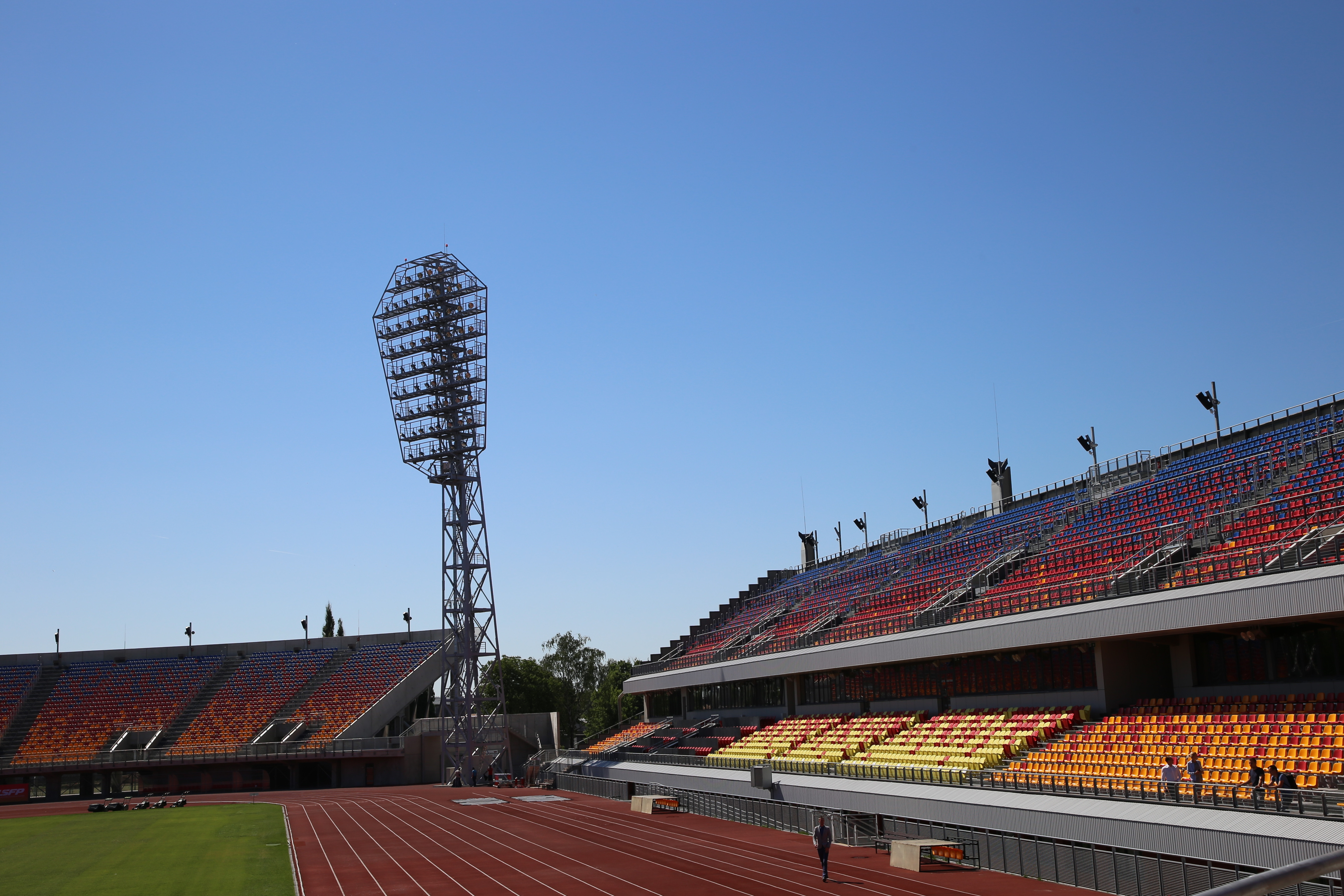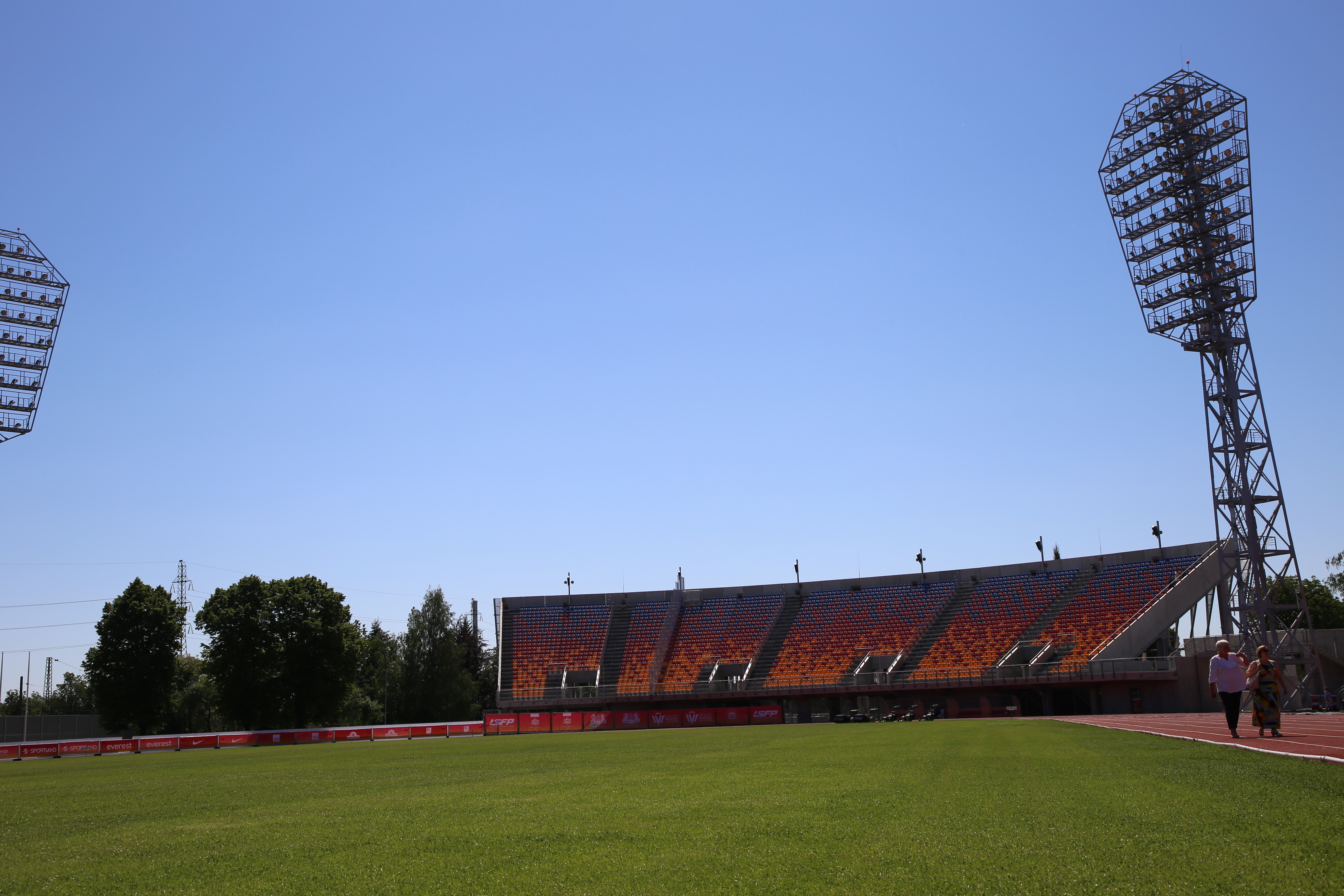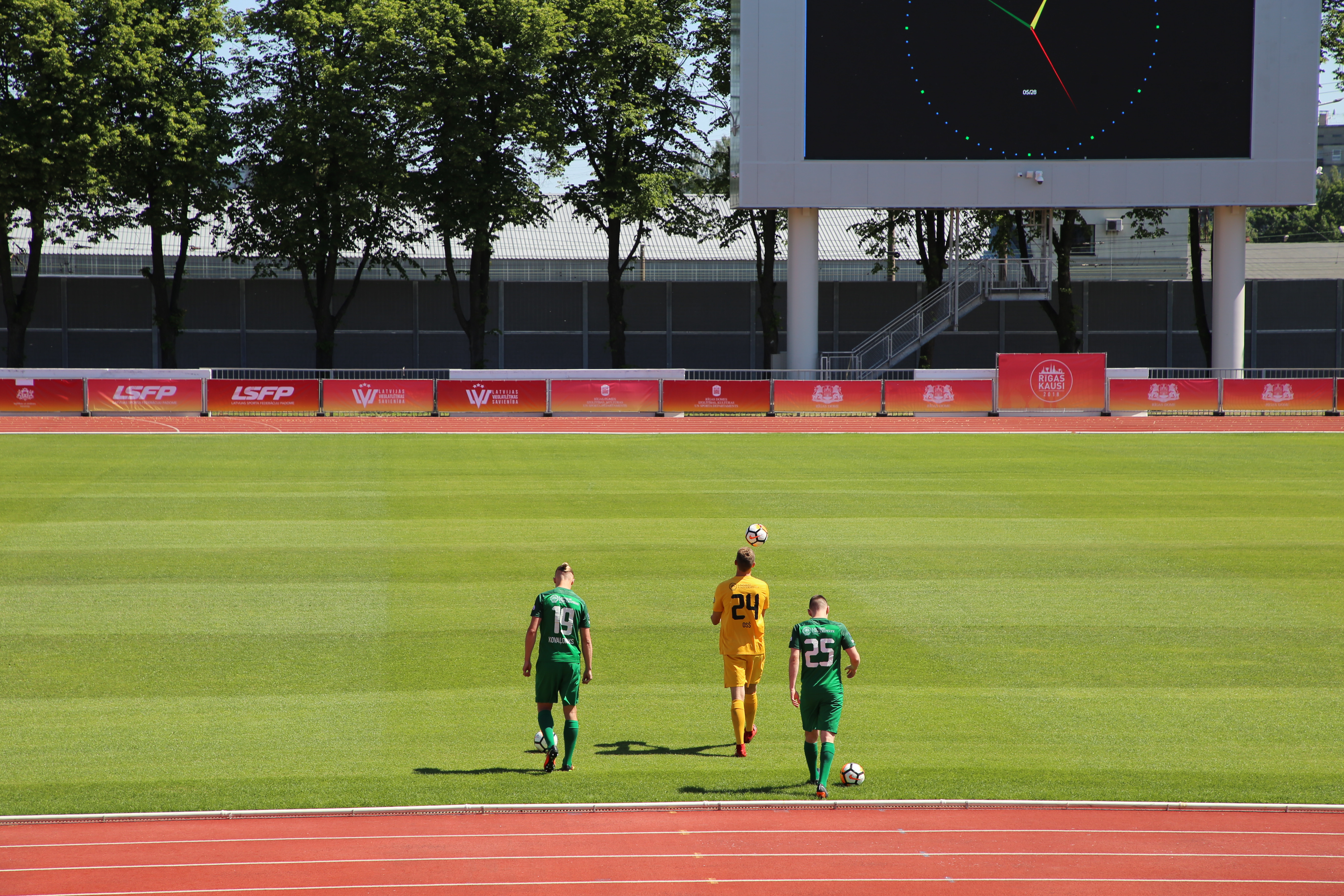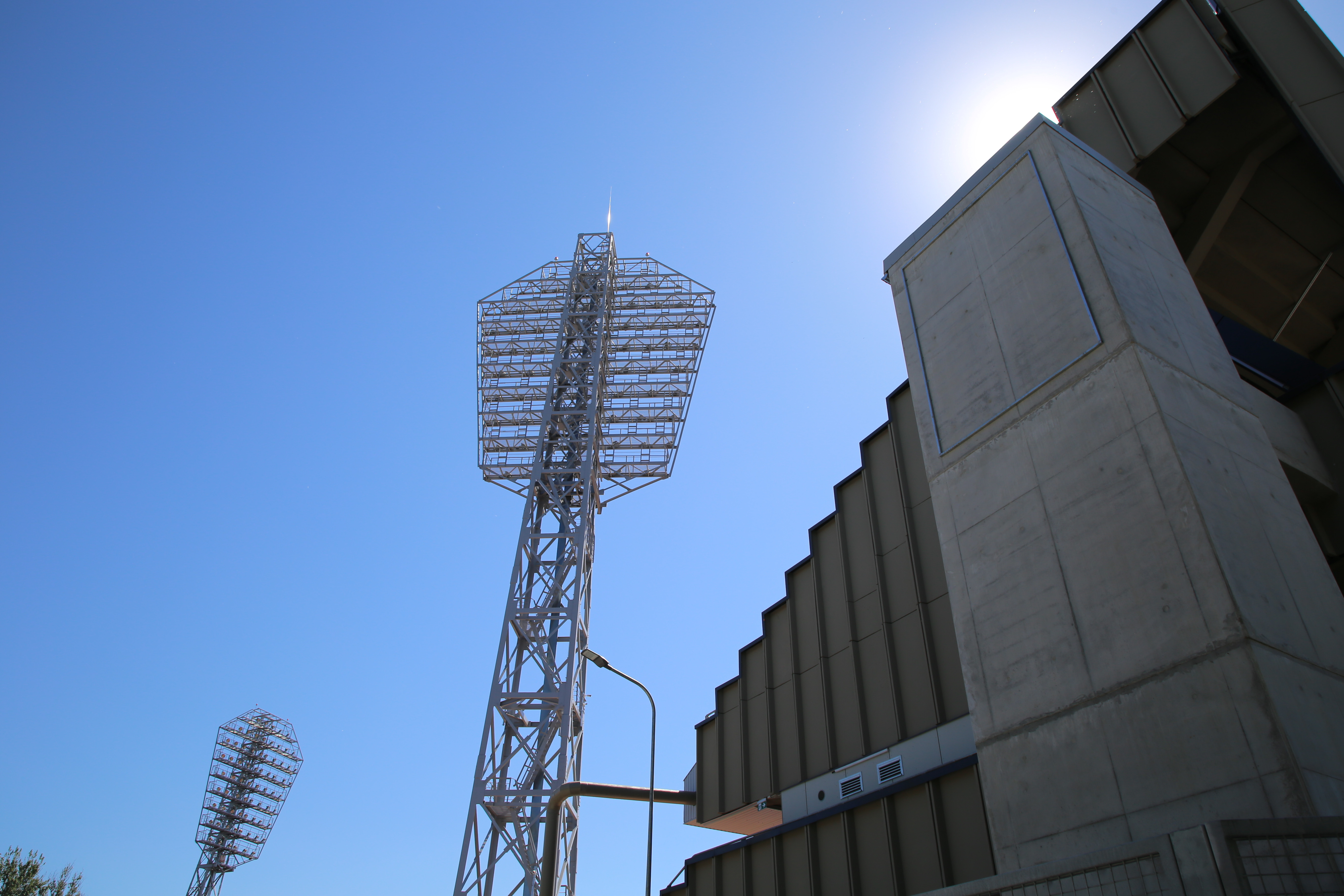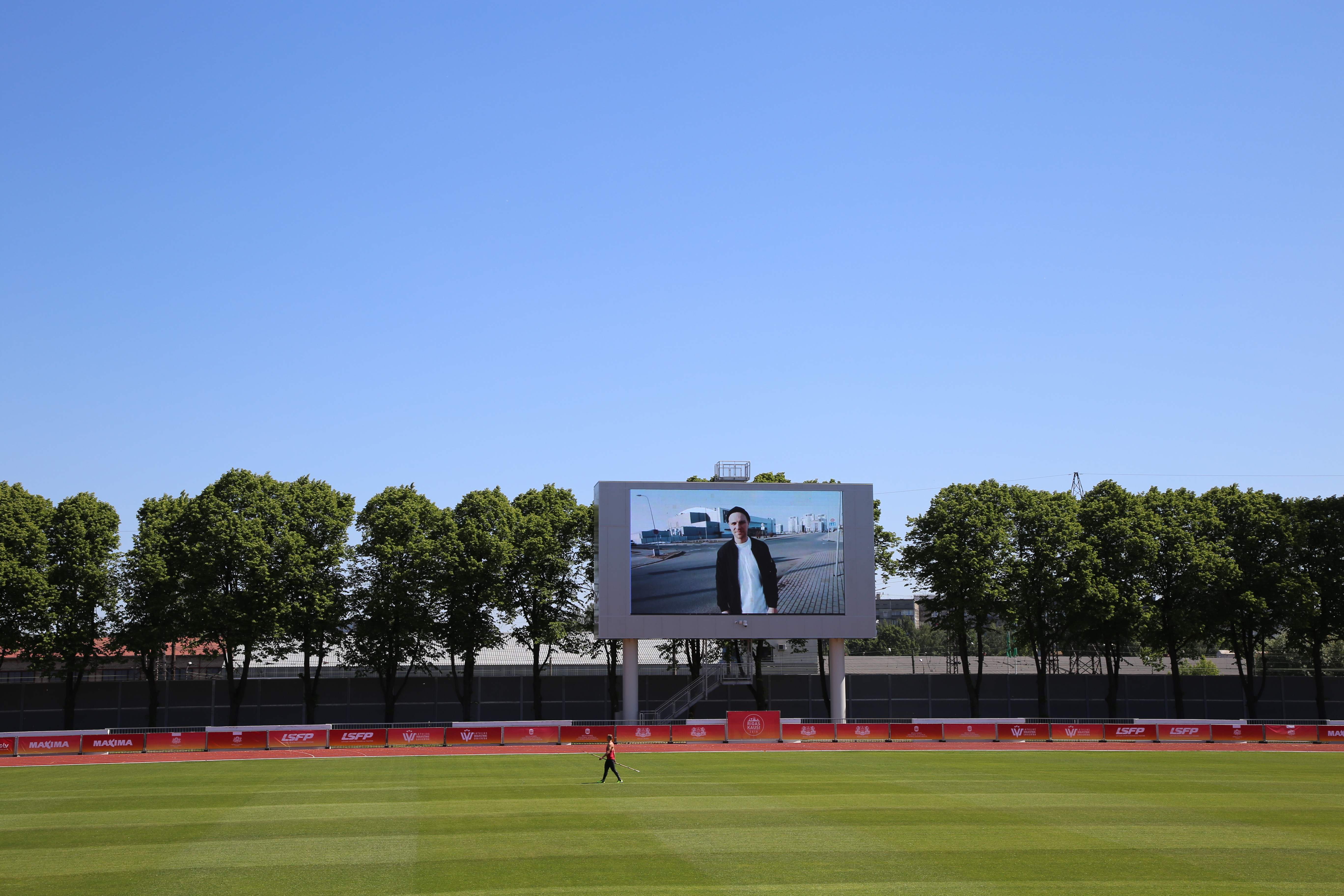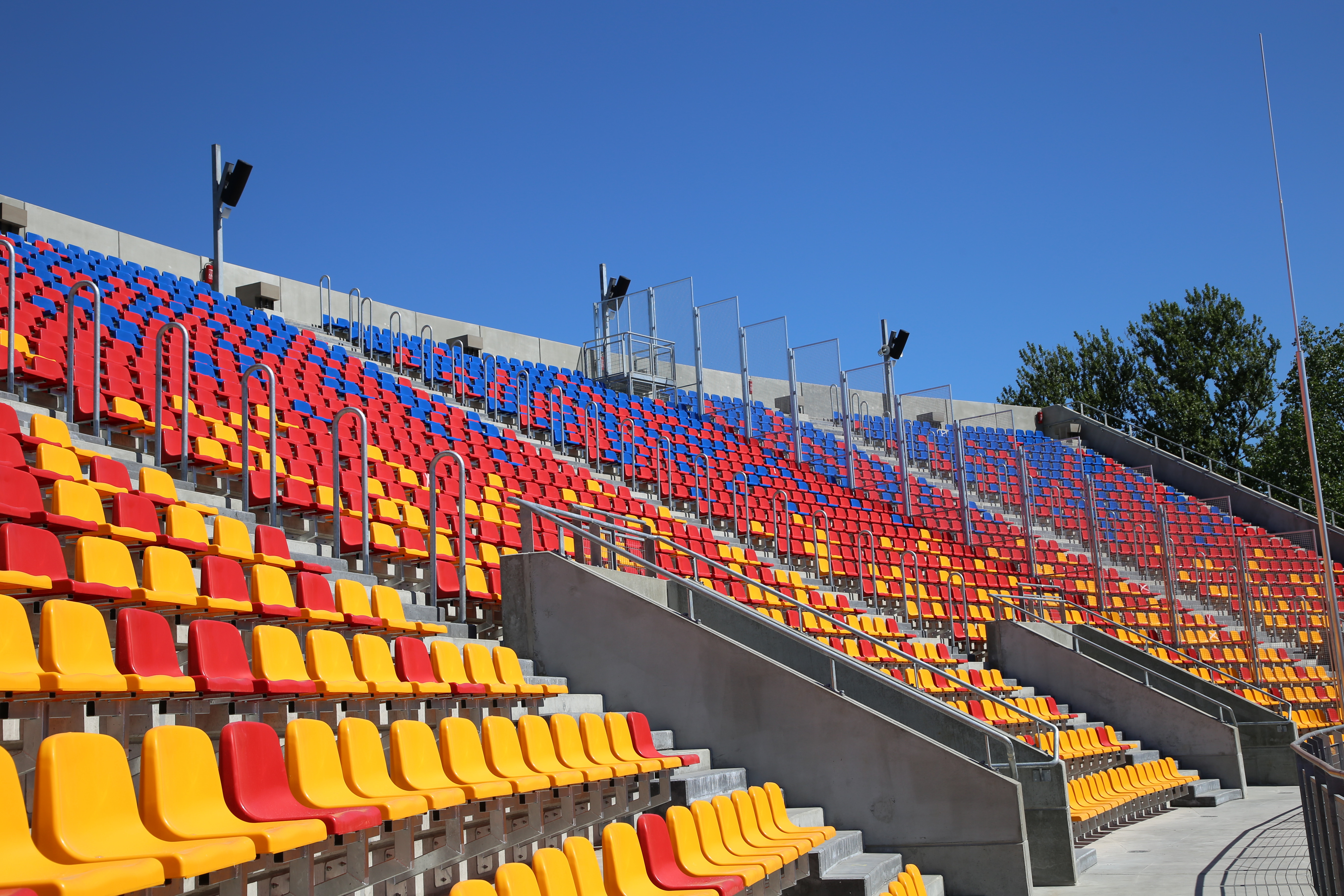The Daugava stadium has been renovated with the support of EU funds. Thanks to a strict construction schedule and good work organization, the construction works were completed in just 13 months.
As part of the first phase of the Daugava Stadium development, the West Stand has been completely renovated, including 5000 m2 of indoor space that meets international football and athletics requirements. The South and North stands were newly constructed as part of the first phase, which increased the number of spectator seats to 10 461. LNK INDUSTRIES Partnership started the reconstruction works in April 2017 for a total contract amount of EUR 10 697 085.25.
The National Stadium is not only ready to host participants and spectators of the Dance Festival, but in the future even football teams such as Real Madrid and Bayern could theoretically play in the stadium.
In the near future, a contract will be signed for the design of the rest of the sports infrastructure facilities, which will be followed by the construction process. It is planned that the first object to be renovated in the next round of construction in 2019 will be the central natural grass football field and athletics running tracks, including all athletics sectors. After completing this stage, Daugava Stadium will have fulfilled all the requirements to be certified according to UEFA category 4 and IAAF category II.
By 2022, Daugava Stadium will have a new ice rink, athletics arena and multi-functional hall. During the improvement of the area, an active recreation area will be created with outdoor trainers, an exercise area and a children's playground, and there will also be a Park&Ride parking lot.
The project "Establishment of a Culture and Sports Quarter in the Grīziņkalns Neighbourhood", dedicated to the centenary of Latvia, is implemented by the Daugava Stadium in cooperation with the Riga City Council Department of Transport. The project is being implemented with available ERDF funds of EUR 37 550 530, complemented by state budget co-financing of EUR 5 559 179, municipal co-financing of EUR 1 500 000, additional state budget funding of EUR 1 080 605 and private co-financing of EUR 1 729 004.
